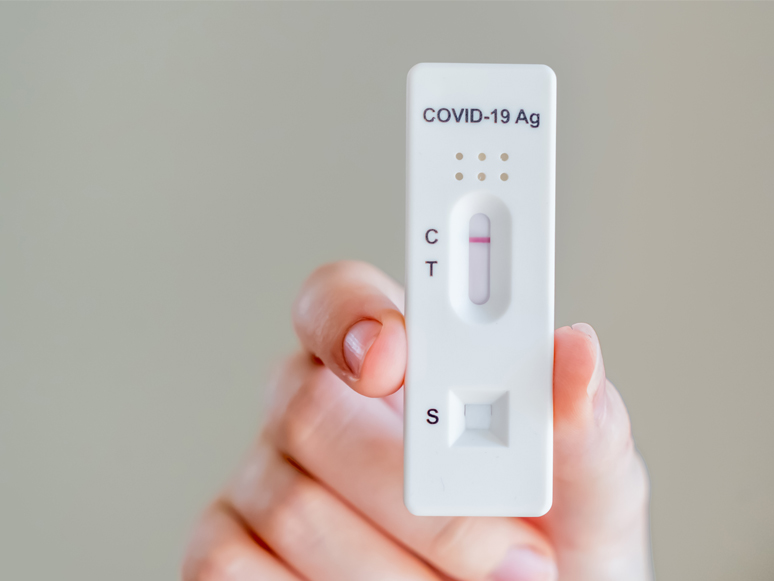logo


01st May, 2022

Because of the financial impacts of COVID-19, trustees of a self managed superannuation fund(SMSF), or a related party of the fund, may provide or accept certain types of relief, which may give rise to contraventions of the super laws. Some trustees may also have been stranded overseas because of travel bans, which can affect their fund’s residency status.
In recognition of these issues, the ATO is offering support and relief to SMSF trustees for the 2019–2020, 2020–2021 and 2021–2022 income years.
This generally includes not taking any compliance action against an SMSF and not requiring the SMSF auditor to report related contraventions in the following areas:
14th Apr, 2022

The availability of temporary full expensing of depreciating assets for business has been extended for another year until 30 June 2023. This measure was originally introduced in 2020 as a part of the Federal Government’s COVID-19 business rescue package, aimed at encouraging business investment by providing a cash flow benefit. As originally introduced, the measure was due to end on 30 June 2022.
Businesses with an aggregated turnover below $5 billion or those that meet an alternative eligibility test can deduct the full cost of eligible depreciating assets of any value that are first held and first used or installed ready for use for a taxable purpose from 6 October 2020 until 30 June 2023.
For small business entities with an aggregated turnover of less than $10 million, the temporary full expensing of depreciating asset rules has been effectively replaced with simplified depreciation rules for any assets first held and used or installed ready for use for a taxable purpose between 6 October 2020 and 30 June 2023. This means that the full cost of eligible depreciating assets, as well as costs of improvements to existing eligible depreciating assets, can be fully deducted.
Not all costs relating to assets qualify for temporary full expensing. For example, building and other capital works, as well as software development pools do not generally qualify. Second-hand assets that would otherwise meet the eligibility conditions also do not qualify for temporary full expensing if the entity that holds them has an aggregated turnover of $50 million or more.
Special rules also apply to cars, where the temporary full expensing is limited to the business portion of the car limit.
31st Mar, 2022

The Government announced two support measures for small businesses (aggregated annual turnover less than $50 million) in the form of a 20% uplift of the amount deductible for expenditure incurred on external training courses and digital technology.
External training courses
An eligible business will be able to deduct an additional 20% of expenditure incurred on external training courses provided to its employees. The training course must be provided to employees in Australia or online, and delivered by entities registered in Australia.
Some exclusions will apply, such as for in-house or on- the-job training.
The boost will apply to eligible expenditure incurred from 7:30 pm (AEDT) on 29 March 2022 until 30 June 2024.
The boost for eligible expenditure incurred by 30 June 2022 will be claimed in tax returns for the following income year. The boost for eligible expenditure incurred between 1 July 2022 and 30 June 2024, will be included in the income year in which the expenditure is incurred.
Digital adoption
An eligible business will be able to deduct an additional 20% of the cost incurred on business expenses and depreciating assets that support its digital adoption, such as portable payment devices, cyber security systems or subscriptions to cloud-based services.
An annual cap will apply in each qualifying income year so that expenditure up to $100,000 will be eligible for the boost.
The boost will apply to eligible expenditure incurred from 7:30 pm (AEDT) on 29 March 2022 until 30 June 2023.
The boost for eligible expenditure incurred by 30 June 2022 will be claimed in tax returns for the following income year. The boost for eligible expenditure incurred between 1 July 2022 and 30 June 2023 will be included in the income year in which the expenditure is incurred.
The Budget papers confirm the Treasurer’s earlier announcement that companies will be allowed to choose to have their PAYG instalments calculated based on current financial performance, extracted from business accounting software (with some tax adjustments).
The commencement date is “subject to advice from software providers about their capacity to deliver”. It is anticipated that systems will be in place by 31 December 2023, with the measure to commence on 1 January 2024, for application to periods starting on or after that date. There are no details yet as to what tax adjustments will be required (although presumably this will involve a reverse, modified form of tax effect accounting).
The Budget papers confirm the Treasurer’s earlier announcement that the GDP uplift factor for PAYG and GST instalments will be set at 2% for the 2022–2023 income year. The papers state that this uplift factor is lower than the 10% that would have applied under the statutory formula.
The 2% GDP uplift rate will apply to small to medium enterprises eligible to use the relevant instalment methods (up to $10 million annual aggregated turnover for GST instalments and $50 million annual aggregated turnover for PAYG instalments) in respect of instalments that relate to the 2022–2023 income year and fall due after the enabling legislation receives assent.
The Government has extended the measure which enables payments from certain state and territory COVID-19 business support programs to be made non-assessable, non-exempt (NANE) income for income tax purposes until 30 June 2022. This measure was originally announced on 13 September 2020.
Consistent with this, the Government has made the following state and territory grant programs eligible for this treatment since the 2021–2022 Mid-Year Economic and Fiscal Outlook:
The changes are part of an ongoing series of announcements which will continue to have effect until 30 June 2022.
13th Mar, 2022

After the recent furore over the non-existent supply of rapid antigen tests (RATs) and the reduced availability of polymerase chain reaction (PCR) tests at many COVID-19 testing sites, the Federal Government is hoping for some good press with the announcement that it intends to legislate to make both PCR tests and RATs tax-deductible for individuals who buy them for a work-related purpose.
According to the government’s proposal, deductibility of tests would take effect from the beginning of the 2021–2022 tax year (that is, starting 1 July 2021) and would be ongoing. Individuals will also be able to deduct the cost of a test regardless of whether they are required to attend the workplace or have the option to work remotely. How much you might benefit from this proposal will depend on your individual tax rate and circumstances.
For businesses that can obtain enough RATs for their workforce, the government has also proposed to make COVID-19 tests provided by employers to employees exempt from FBT, if they are used for work-related purposes. This essentially means the tests would be excluded from the definition of a fringe benefit, and employers would not have to pay FBT on the costs of tests given to their employees in a work-related context.
With the Federal election fast creeping up, there doesn’t seem much time for this proposal to be introduced in Parliament and passed into law. There is also uncertainty as to whether a possible Labor government would champion this specific tax- deductibility measure, in particular due to Labor’s election pledge to provide free RATs to all Australians through Medicare.
13th Mar, 2022

The ongoing COVID-19 pandemic has caused uncertainty in many parts of the economic and has led to what many experts term a “two-speed economy”: while some businesses are recovering well, others continue to suffer from the effects. If your business has had issues paying debts, or you’ve prioritised trade debts ahead of tax debts, it’s important to remember that it may lead to penalties and have a lasting impact on the business.
The best option is to engage with the ATO to manage business debts. Failure to get in touch with the ATO to come to an arrangement will not only affect the potential penalties imposed, but may also affect your business’s credit score.
Laws were passed in 2019 which allow the ATO to disclose information about overdue business tax debts to credit reporting agencies. The intended effects include reducing unfair financial advantages obtained by businesses that do not pay their tax on time, and encouraging businesses to engage with the ATO to manage their tax debts to avoid having those debts disclosed.
To protect taxpayers, the laws passed contained some safeguards. Not all tax debts can be disclosed, and even if a business debt satisfies the requirements for reporting, where exceptional circumstances apply to the situation the ATO may still have the discretion to not report the debt information to credit reporting agencies. “Exceptional circumstances” may include, but are not limited to, family tragedy, serious illness and the impact of natural disasters. The ATO will assess claims of exceptional circumstances on a case- by-case basis.
General cash flow issues or financial hardship are not considered to be exceptional circumstances, but if you’re experiencing these issues it’s best to make contact with the ATO as soon as possible.
Before any debt is disclosed to credit reporting agencies, the ATO must send your business a written notice setting out the criteria that the business has met and the debt information that will be disclosed. The letter will also outline the steps to avoid having the tax debt reported, which you need to take within 28 days of receiving the notice.
10th Feb, 2022

Amidst the Omicron COVID-19 wave and with our governments shortening booster dose intervals, many businesses are encouraging their employees and customers to get either vaccinated or get their booster dose by offering rewards or incentives. While this is an effective way to help employees and customers stay safe and businesses to stay open, it’s important to consider that there may be some tax consequences involved.
If your business provides free or discounted goods, services, vouchers, gift cards, rewards points or other non-cash benefits to everyone who has had their COVID-19 vaccinations, those benefits will not be subject to FBT, even if your employees take part in the program. This is because the benefit isn’t provided in respect of your employees’ employment. Providing these types of non-cash benefits only to your employees may be subject to FBT; however, a benefit with a value under $300 may qualify for a minor benefit exemption.
If a non-cash benefit provided to your employees doesn’t qualify for the minor benefit exemption, a reduction in taxable value of FBT may be available if the benefit is an “in-house” one. Generally, an in-house benefit is something identical or similar to the benefits you provide to customers in the ordinary course of business – for example, clothes given by a clothing retailer.
If you give your employees a cash payment for getting vaccinated, your business will need to report it via Single Touch Payroll (STP) as part of each employee’s salary or wages, withhold tax from the amount under PAYG withholding, and include the amount in each employee’s ordinary time earnings for the purposes of determining super contributions.